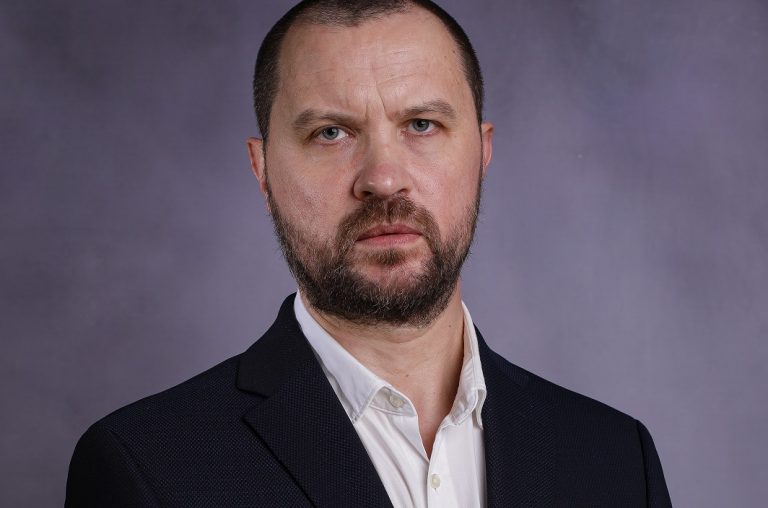
The Inevitable Resignation: A Breakdown of Communication with the Romanian President Prompts Resignation of Chief of Intelligence Service / Eduard Hellvig’s Next Move Uncertain
The information that there is a cooling off between the head of state and the head of the National Intelligence Service (SRI) has been circulating for more than a year and it was around this time that the first rumors about a possible departure of Eduard Hellvig from the head of the institution appeared before President Klaus Iohannis ends his mandate. As a rule, heads of secret services leave with or shortly after the president who appointed them. Very rarely do they do so before.
Urmărește cele mai noi producții video G4Media
- articolul continuă mai jos -
It is hard to say how and why communication between the two broke down at some point, especially since Hellvig was one of the few liberals who stood by his side during the 2014 presidential campaign when few believed in the Sibiu mayor’s chances of becoming president.
What eroded the trust between Klaus Iohannis and Eduard Hellvig? How and why did the head of the SRI end up hardly communicating with his direct boss, speaking to each other only on rare official occasions? The head of the SRI accompanied the head of state during recent visits to Azerbaijan and the emirates, leading some to believe that the relationship has been repaired. That was not the case.
How and why did the head of state stop inviting the head of the SRI on other official occasions? What we know for sure is that the relationship has deteriorated recently. We still don’t have clear answers to the above questions.
We can only speculate that President Klaus Iohannis has not yet digested the SRI director’s refusal to accept the post of prime minister after Orban’s replacement at the Victoria Palace. But maybe there’s more to it than the president’s wounded ego. Something that eludes us all now.
In any case, the situation could not continue like this. It is hard to imagine that the head of state and the head of the SRI have been out of communication for more than a year and that the state can continue to function without major disruptions. With the war in Ukraine on the border, there couldn’t have been a worse time for a major short-circuit at the top. Eduard Hellvig’s departure would most likely have happened sooner if there had been no war and if Western partners had not wanted stability even in an area as sensitive as national security.
The president has at least as bad a relationship with the other head of service, Gabriel Vlase of the PSD-backed SIE. There have also been reports of a possible change in his position, especially after the Schengen failure. But that’s another matter. In any case, it is worth noting the communication breakdown between the president and the two secret service chiefs. It is unprecedented in Romania’s history.
Eduard Hellvig ends his mandate after eight years, a term that some politicians see as limited to five years. The intelligence and power accumulated in two terms make the heads of the services the most powerful people in Romania, who, mind you, cannot be dismissed by the president unless they want to leave voluntarily (see the case of Mihai Răzvan Ungureanu).
Hellvig leaves behind a notable institutional reform ( regionalization of the SRI), a service respected outside the country and feared inside, far too involved in politics, business and administration at almost all levels. What will he do next?
Again a great unknown. It’s hard to believe that he will be involved in politics in 2024, and even harder to believe that he will stay out of it after the four rounds of elections next year. Perhaps the installation of Marcel Ciolacu (PSD) was also a reason for the head of the SRI (a former liberal) to leave his post to avoid being accused of partisanship. Or maybe he has already negotiated his future with the PSD leader himself. Nothing can be excluded, we are in the realm of speculation.
Hellvig is smart enough to understand that he cannot return to the public arena, let alone politics, in the immediate future and that he needs time to distance himself from the institution he has led for over eight years.
Will the inevitable crisis in the PNL after the first round of elections (Europarliamentary elections in June 2024) lead him to get involved in rebuilding the PNL? It would still be too early for a possible return to politics.
In any case, Eduard Hellvig’s career is not likely to end here. He will most likely want to take up top administrative positions, rather abroad.
Will President Iohannis want to install a new head of the SRI for a year and a half? Unlikely. To avoid any talk of politicizing the service in a year with four rounds of elections, the current first deputy, Răzvan Ionescu, will most likely provide interim leadership until the end of next year, when a new president arrives at the Cotroceni.

Donează lunar pentru susținerea proiectului G4Media
Donează suma dorită pentru susținerea proiectului G4Media
CONT LEI: RO89RZBR0000060019874867
Deschis la Raiffeisen Bank



1 comentariu